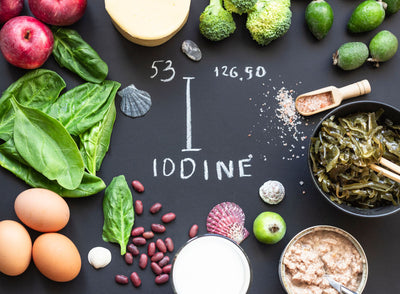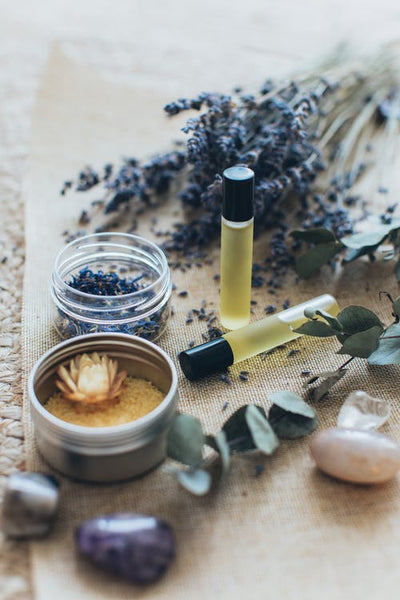Please note: This blog article contains sexual information.
On December 12, 1964 the song entitled You’ve Lost That Lovin’ Feelin’ by the Righteous Brothers exploded onto the music scene and quickly rose to the top of the billboard charts, remaining a favorite even today. Who can forget Maverick (Tom Cruise) and Goose singing it in Top Gun, right? The song opens lamenting a once fiery love that had dwindled down to the equivalent of cold ashes in a fire pit. The passion was “gone gone gone….woh, woh woh….”
Valentines’ Day is just around the corner and just the mention of the holiday to celebrate love usually evokes one of two responses in people. Possibly Marvin Gaye’s song, Let’s Get It On, pops into your mind as you anticipate a night filled with romance with the one you love. But too often we find ourselves lamenting with the Righteous Brothers of passion gone awry or worse, we just don’t care anymore. If your loss of passion is related to sex drive, desire, or ability, then keep reading. This blog is for you. There’s hope to resurrect both that libido and performance in a way that can make you see fireworks again, and a boost in oxytocin may be just the ticket.
Oxytocin is a nifty hormone that was long ago relegated to only the OBGYN office. Most people including doctors only know it to be useful in inducing labor and with breastfeeding. But if it’s only for labor and breastfeeding, why do men have it? Good question. Estrogen helps drive oxytocin production which explains why women have more than men, but men also have estrogen which facilitates their bodies’ production of oxytocin too. Because of varying amounts of oxytocin in a woman’s and a man’s body, we can understand how it only takes a 30-second hug for a woman’s oxytocin level to start to climb verses about 90 seconds for a man (three times as long). Sadly, medicine has yet to define the characteristics of an oxytocin deficiency, but there are many.
In recent years more research has been done into oxytocin. You may have seen articles calling it the “cuddle hormone” or the “love hormone” because of its serious role in bonding and trust. It is therefore credited in helping partners remain faithful to each other. Lesser known is the research into using oxytocin to help people with autism become more relational. It also suppresses cortisol levels, is a vasodilator, and controls pain. For the sake of this blog let’s venture into its role into our sex lives. We’ll explore other roles in the next blog.
Did you have sex last night? If so, that orgasm caused your oxytocin production to skyrocket a whopping 365% according to Dr. Jorge Flechas, a physician and researcher in the field. It relieves stress, relaxes the body, and builds connection and trust with your partner while simultaneously restoring both passion and energy. For that alone oxytocin deserves a standing ovation. Dr. Flechas describes orgasm as “hitting a reset button for the whole body.” Dr. Anna Cabeca, an Emory trained OBGYN turned functional medicine doctor and lecturer, likes to say, “Orgasm is to the brain what cardiovascular exercise is to the heart.” Bottom line is with orgasms we get emotiona and physical benefits. We can all agree if we found a stock that had a 365% return, we would be busting down the doors to invest, so it’s fair to say we’ve hit a hormone jackpot with oxytocin.
But what if a person is having trouble having an orgasm or even having the desire? Good news. Oxytocin is there for you, too, since it helps with sexual function. For both men and women optimal levels of oxytocin increase pleasure and attachment. Consistently higher levels lead to higher sex drives and better function in both men and women.
Men
Men, do you want stronger, longer orgasms? Oxytocin is your friend since it increases sensitivity in the penis, can make the glans penis less dry, and plays a significant role in ejaculation. It increases ejaculation volume and can increase sperm count because of its role in prostate capsule contractions. It not only intensifies the emotional feelings involved in the sexual experience, but it intensifies the sensations of orgasm and the length of time for each orgasm. If you are having trouble ejaculating, it may be an oxytocin deficiency that can likely be corrected. Other erectile dysfunction can be connected, too, and may involve the need to balance all the sex hormones topped with a little nitric oxide booster.
On a side note, men, you know that overwhelming desire to fall asleep after intercourse when your wife wants to cuddle? The massive production of the “feel good” hormone just temporarily relieved your body of stressful thoughts and told your body all is right in your world. Additionally your body during orgasm also released mega amounts of prolactin, a dopamine suppressant causing you to feel sleepy. Piggyback those two hormones on your body’s natural melatonin production, and you have the perfect sleep trifecta. So ladies, cut your guy some slack since you helped him achieve this euphoric state and understand there is a biological reason for this response!
Women
Ladies, oxytocin is a shining gem in the jewelry box of hormones. It’s why you want to cuddle up with your man and revel in that wonderful sense of connection. It contributes to your sexual desire (as do other sex hormones), but it CONTROLS your sexual function. That pesky problem of vaginal dryness may just get resolved when your oxytocin levels are optimal since it is known to increase vaginal secretions. Women also report climaxing much quicker when oxytocin levels are optimal. Your oxytocin level also correlates to the intensity of your orgasms. The higher the oxytocin level, the more intense your orgasms will be since oxytocin produces clitoral, vaginal, anal and uterine contractions. And it’s not just intensity. Orgasms last longer, in some cases significantly longer. In fact, don’t be surprised if you become multi-orgasmic. Dr. Flechas reported about half the women he has treated with oxytocin became multi-orgasmic.
So how does one know if there is a deficiency? Dr. Thierry Hertoghe wrote in The Hormone Handbook 2nd edition a quick summary of sexual complaints heard by both men and women with oxytocin deficiencies. He reported in general men notice a lower sex drive and arousal, few or no ejaculations, low ejaculation volume, poor sperm count, and sex feeling mechanical instead of a loving, romantic experience.
Women will often complain of an absence or rareness of orgasm, needing more than twenty minutes to reach orgasm, low orgasmic intensity and an absence of multiple orgasms if they were formerly multi-orgasmic. Statistically 40% of women age 40 or over report problems with anorgasmia.
Both men and women with deficiencies may also appear extremely pale and constantly experience cold hands and feet.
If one experiences a mild deficiency, there are a number of things to do to raise oxytocin levels.
- Physical contact (non-sexual) with others—holding a baby, hugging a friend, petting your dog. Physical touch promotes oxytocin production.
- Spending time with friends, being part of a community, joining a club.
- Massage.
- Playful behavior—dancing, singing, exercise, movement.
- Laughing…laughing with friends even better!
- Love, romantic as well as maternal/paternal.
- Breastfeeding.
- Sexual contact, more frequent orgasms.
- Philanthropic work/giving.
I don’t know if the Righteous Brothers ever found a way to bring back that lovin’ feelin’ that they longed for in the song, but very possibly you can. Our next blog will explore what can cause oxytocin levels to drop along with other oxytocin roles, but if anything in here resonated with you, very likely you are due for a hormone check-up. Often the problem is not just oxytocin but a balancing of all your hormones to create optimal function and satisfaction for your sex life. It can be easy to just blame these problems on age (yes, age does cause a decrease in many hormone levels, oxytocin included) but all these hormones do much more than stoke your love life. They create health throughout your body.
A brief survey is available at Dr. Matalone’s office to help determine if you have an oxytocin deficiency. You and Dr. Matalone can work together to bring back balance and vitality. You just might give yourself the best Valentines gift you’ve ever received.






